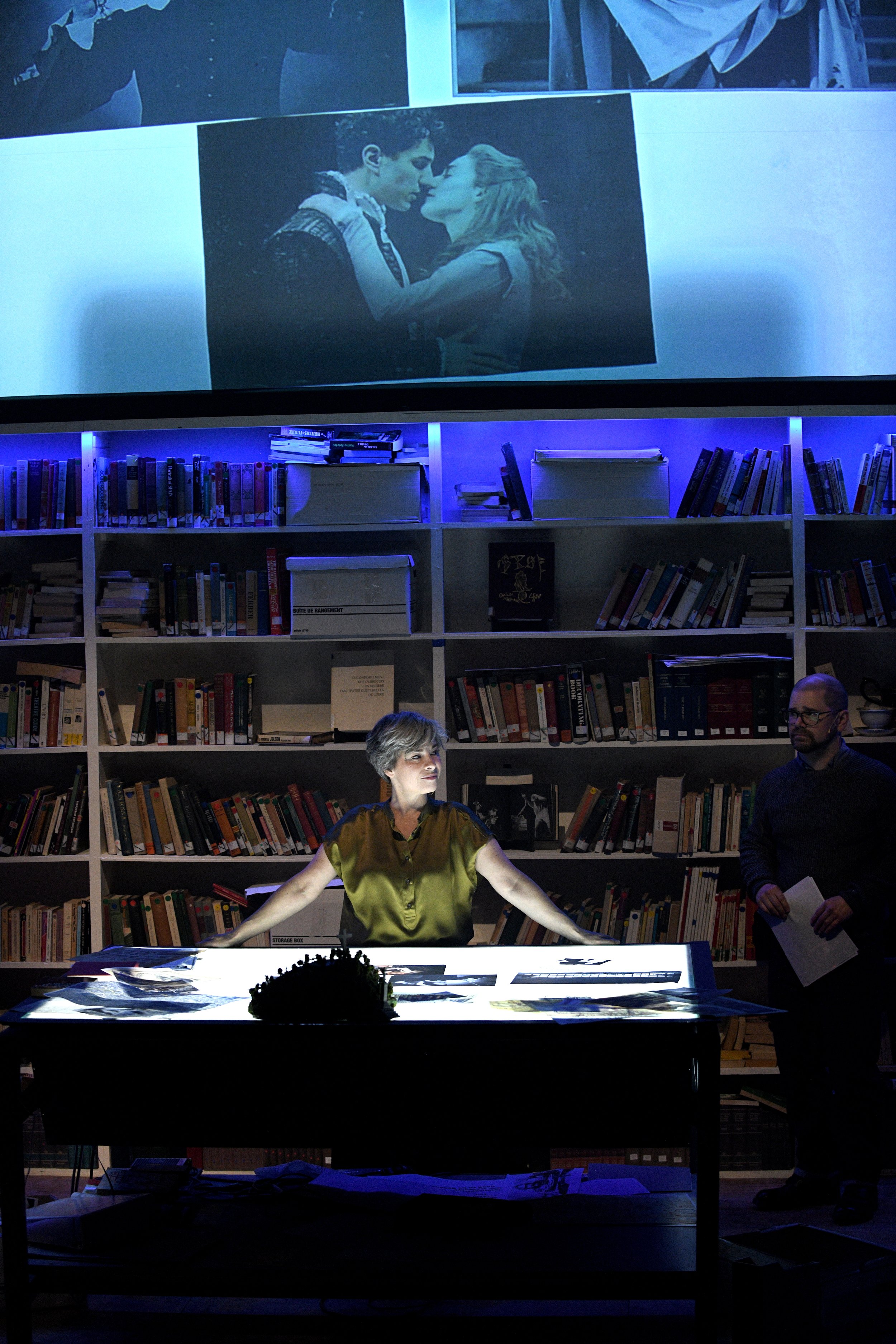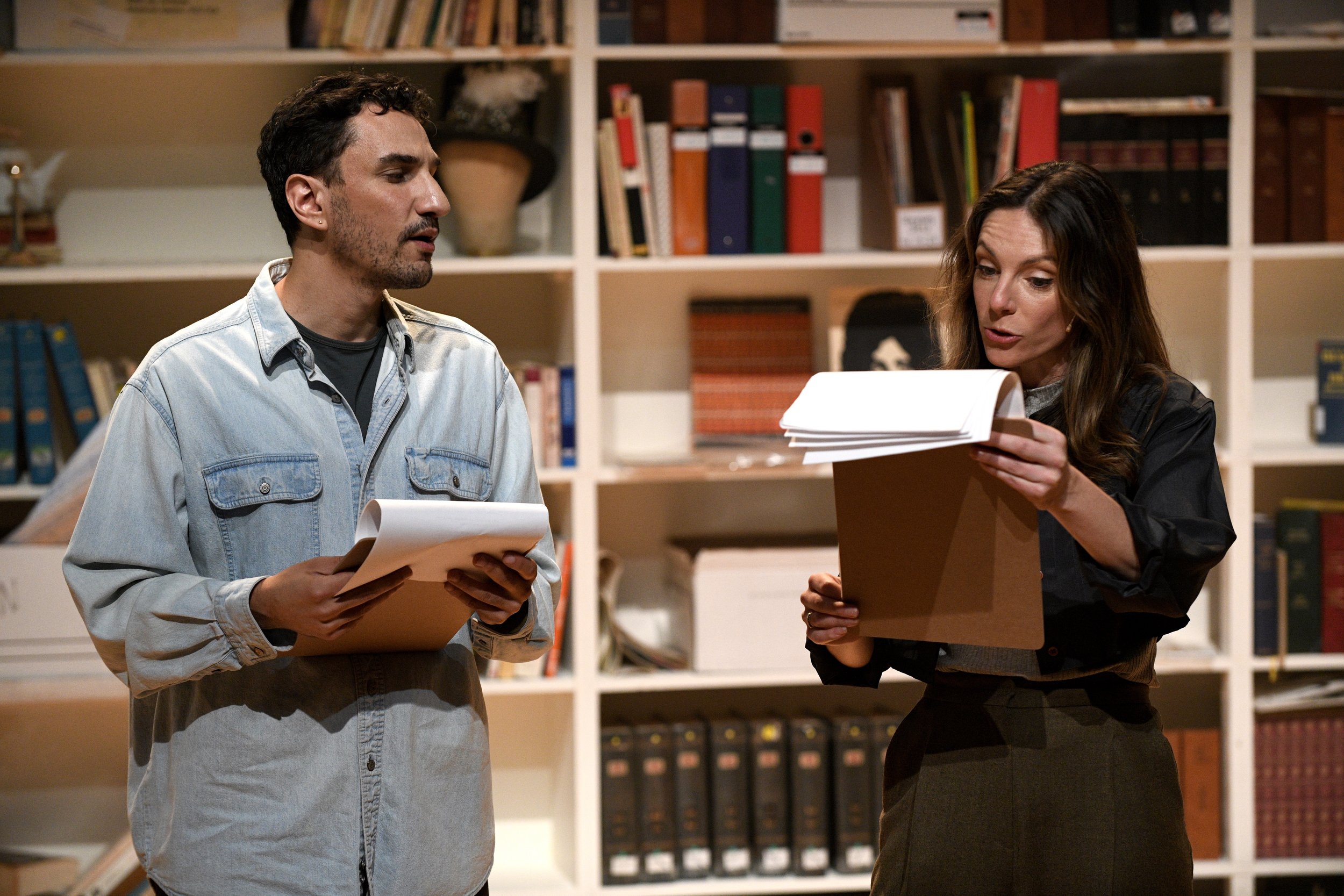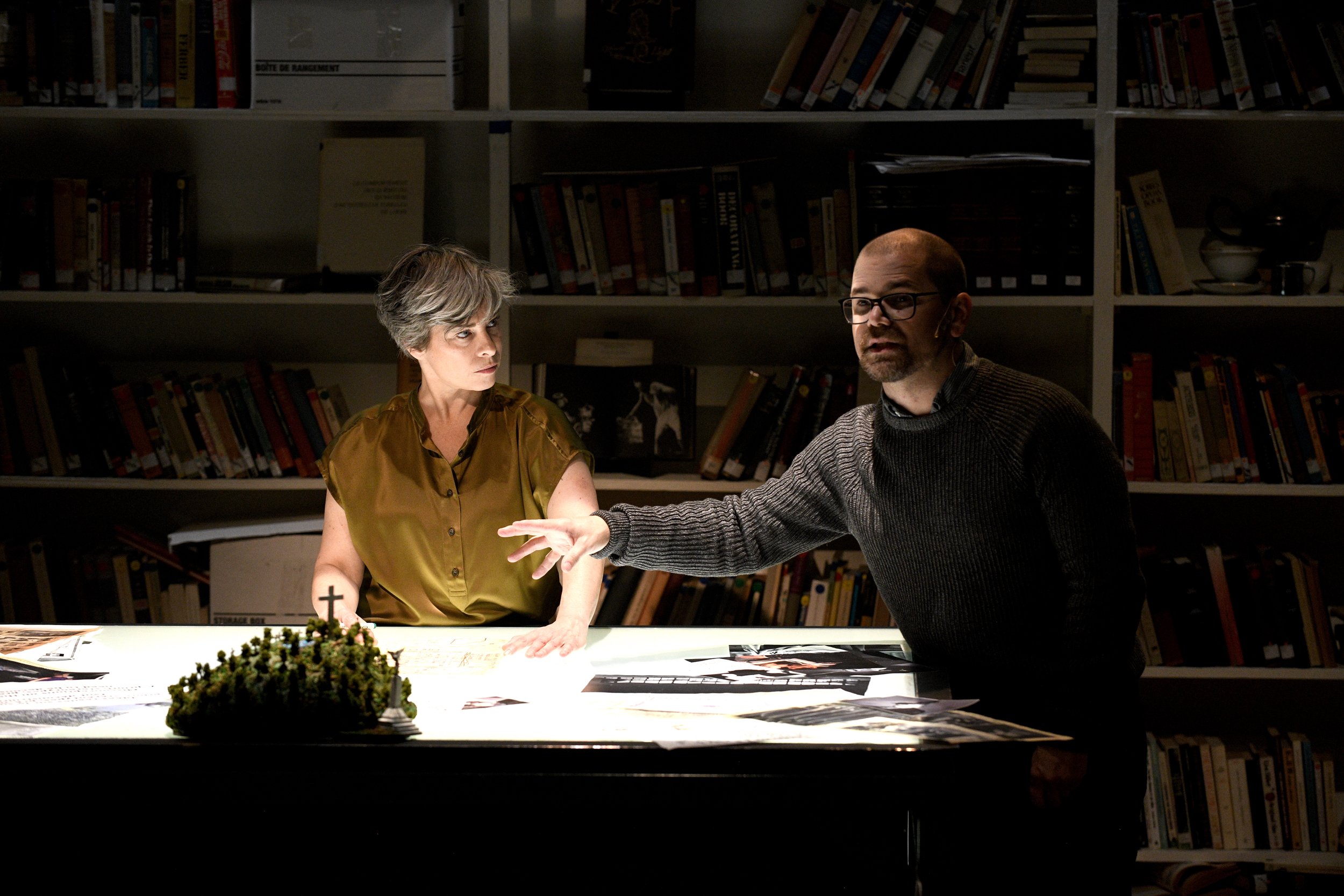
cyclorama
“Depuis ma graduation de l'École Nationale de théâtre, j'ai travaillé en français, en anglais, pis j'ai réalisé que les deux communautés connaissaient presque rien l'une de l'autre. So tonight, I'd like to put an end to that.”
- laurence dauphinais, dans cyclorama
-
As we delve into the archives of theatre in Montreal you will be whisked between the two locales on a bus for an experience that asks the question, why are we so divided?
An exciting, historical event that joins two theatres: One English, one French, in a 360-degree view of our city. Brought to us by award-winning bilingual artist Laurence Dauphinais, this bilingual documentary theatre piece takes place in 3 locations: Centaur Theatre, Centre du Théâtre d’Aujourd’hui, and a bus – complete with a tour guide – that travels from one theatre to the next.
Like the beloved cycloramas of days gone by, this play offers audiences a panoramic look at the city and its history.
Laurence Dauphinais, a French-speaking Quebec theatre-maker, works regularly with Francophone and Anglophone artists and asks herself why these two communities seem to ignore each other. With the help of collaborators on both sides of the language barrier, following a meticulous research protocol, Laurence delves into the history of Montreal theatre and its audiences, to take spectators on an unprecedented journey through the city, time and space.
-
Cyclorama: Circular panorama representing a historical fresco from which all angles can be observed simultaneously.
Collective stories are one of the central dimensions of the life of communities, and contribute greatly to their social cohesion. But in pluralistic societies like Quebec, they are undermined, and this fragmentation often causes identity problems of all kinds. The latest provincial language policies preventing the expansion of English CEGEPs and forcing immigrants to learn the language of the majority in record time certainly testify to this discomfort. Personally, I believe it is the responsibility of dominant cultures to question the stories that have woven them and to have the courage to revisit their blind spots when necessary.
I am a French-speaking Quebecer who has been immersed since childhood in a very specific assemblage of stories surrounding language, identity, oppression, territory and survival. I grew up at a time in the history of Quebec when speaking English, for French speakers, could easily be perceived as an act of alienation.
Only French resonated at home. Books, radio, TV. The daily, all in French. Except maybe on the annual trip to Old Orchard. I clearly remember those precious arrivals at US customs where I made a point of waking up for the sole purpose of laughing at my parents' English, a language that no one in the family knew. To the sound of the great classics of Doo-Wop and Surfin’ USA, recorded on the only holiday mixed tape and which I had fun singing phonetically, the mountains of Vermont seemed greener to me. But the approximation has its limits, and one day, I wanted to learn the language of the enemy.
Learn it for matters of the heart, first, then to be able to project myself elsewhere. I tamed her by meeting her in French kisses. I absorbed it by acting out other people's words in the theatre. Speaking with other phonemes than those I used by default parachuted me into the heart of unfamiliar territory, and it was galvanizing.
Since then, like many people of my generation, I work fluently in English and French, and my universe is deeply enriched. The adoption of Bill 96 proves that there is a major divide between the punitive policies imposed by the government, presumably fueled by the fear of loss, and the desire for inclusion carried by my generation and those that follow.
With Cyclorama, I wanted to dig deeper into the discomfort, hoping it would dissolve. To use the theatrical universe of Montreal, deeply divided linguistically and culturally, to study the concrete consequences of History on the practice of one and the same art. To bring together audiences who know nothing about each other. To wash our dirty laundry as an extended family. Above all, I wanted to give voice to all points of view simultaneously, to understand in which stories they take root and why they persist. I wanted to give us the opportunity to rewrite history and its stories in the present time, that of theatrical performance. -
Created + Directed by Laurence Dauphinais
Featuring Laurence Dauphinais, Antoine Yared, Alexandre Cadieux + Erin Hurley
History Consultants Alexandre Cadieux + Erin Hurley
Assistant Director + Stage Manager Charlie Cohen
Set Design Robin Brazill
Costume Design Cynthia St-Gelais
Lighting Design Chantal Labonté
Original Music Navet Confit
Video Conception Allison Moore
Props + Assistant Designer Marie-Ève Fortier
Video Integration Pierre Laniel
Dramaturgists Cristina Cugliandro + Mathieu Gosselin + Camille Trudel
Dramaturgy Consultant Camille Trudel
Makeup + Hair Sylvie Rolland-Provost
History Research Alexis Paquette-Lacasse
Subtitles Elaine Normandeau
Subtitle Operator Mélodie Lupien
Historical Research Alexis Paquette-Lacasse
Production Manager Howard Mendelsohn
Manager of Technical Operations Peter Cerone
Head Technician Michael Tonus
Assistant Production Manager Liana Rose Mundy -
2022
Centaur Theatre - Centre du théâtre d’aujourd’hui – from October 11th - November 6th, 2022
-
[the facts], presented with dazzling multimedia effects and an engaging sense of easy chumminess from the four performers, are rarely less than fascinating, taking us on an imaginative journey through decades of theatre history here in Montreal.
- Jim Burke, The Montreal Gazette
-
Cyclorama entertains and provokes us through an amalgam of poignancy and wittiness. It makes the audience laugh with greatly-timed, oddly specific and somehow relatable anecdotes, but it also arouses tingles of melancholy. The play raises important questions on the sociopolitical tension between anglophones and francophones, their shared yet separate history, and their way of cohabitation.
- Rebecca Li and Marie-Anne Le Hir, The News Blitz
© Valérie Remise
© Valérie Remise
© Valérie Remise
© Valérie Remise
© Valérie Remise
© Valérie Remise
© Valérie Remise
© Valérie Remise
© Valérie Remise
© Valérie Remise
© Valérie Remise
© Valérie Remise











